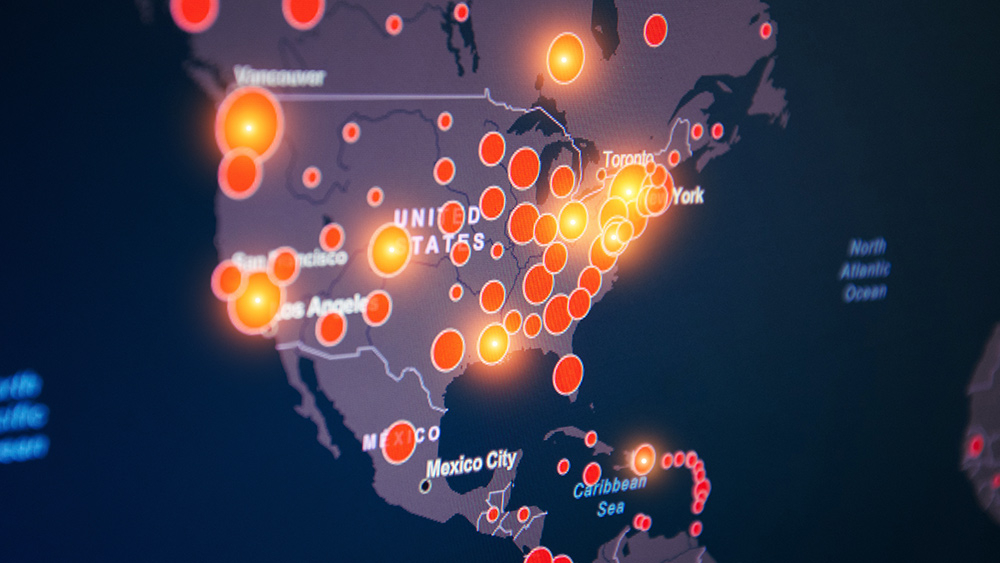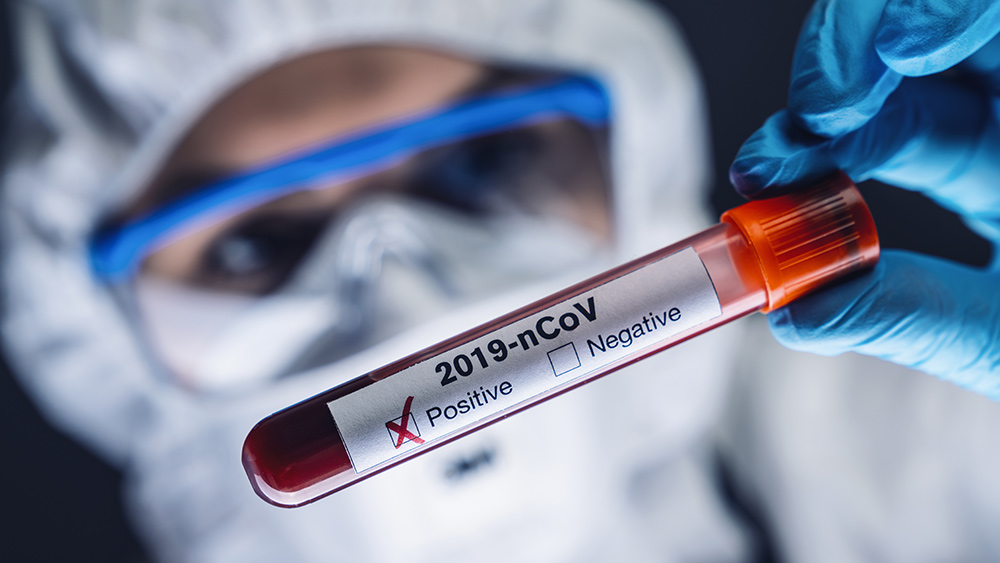A town in Germany prevented 40% of coronavirus infections by masking up
06/15/2020 / By Ralph Flores

A new study that looked at the effects of face masks on the spread of the coronavirus in a town in Germany revealed that using face covering can reduce transmission by as much as 40 percent.
The study, which was authored by the IZA Institute of Labor Economics, analyzed the city of Jena in the central province of Thuringia. During the height of the coronavirus outbreak in Germany, the city was among the first places to adopt the use of masks, making face coverings mandatory for citizens riding trains, buses and going into stores as early as April 6. The rest of Germany followed suit, with most states requiring face masks in public by late April.
According to the researchers, new infections in the city – which has a population of 108,000 – almost disappeared after face masks became compulsory.
Early adoption led to lower infections
The authors compared Jena’s trajectory with a synthetic control that used weighted-average sample data from other towns and cities in Germany. This created a synthetic town that was similar to Jena – but adopted compulsory face masks later than April 6.
After April 6, the team’s data noted a 13-percent drop in new infections in Jena within the first 10 days compared to the control group. According to the authors, the gap in caseloads between Jena and the synthetic control unit continued to widen, with Jena lowering their new infections by 25 percent within 20 days. The control group, in comparison, saw their numbers rise in the same period.
By adopting face masks early, the city of Jena was able to curb its daily infections by 40 percent, the authors wrote in their report. If the same treatment were applied to bigger cities, they wrote that it could have a “significant face mask-effect in the reduction of [COVID-19] infections.” In particular, the team noted a marked decline in cases within 20 days.
The team also noted that their paper was the first to provide field evidence that said masks were a cost-efficient method to stymie new infections. Despite their results, the team stressed the need for more comprehensive studies, especially outside Germany, to determine other variables and biases. For their study, they also included various models of masks, as German states didn’t require a specific type. (Related: Face masks, public hygiene helped Japan fight the coronavirus.)
Lower infections after face masks became mandatory
A similar study from researchers in Texas and California also suggests that wearing a mask is the most effective way to prevent the spread of the coronavirus. In their report, the team analyzed infection data from Italy and New York City, looking at infection rate trends before and after masks were made mandatory.
Based on their report, which was published in the Proceedings of the National Academy of Sciences, both locations saw their infection rates go down after the measures were put in place. The researchers noted that wearing face masks prevented over 78,000 infections in Italy between April 6 and May 9, and more than 66,000 new cases in New York City between April 17 and May 9.
“Wearing of face masks in public corresponds to the most effective means to prevent interhuman transmission, and this inexpensive practice, in conjunction with simultaneous social distancing, quarantine, and contact tracing, represents the most likely fighting opportunity to stop the COVID-19 pandemic,” the researchers wrote in their report.
New York City remains the hardest-hit city in the U.S. with 208,954 cases and 30,758 deaths, according to data from Johns Hopkins University. Meanwhile, Italy has a total caseload of 236,305, with 34,223 deaths, as of Friday night.
Pandemic.news has more stories about the ongoing Wuhan coronavirus outbreak.
Sources include:
FTP.IZA.org [PDF]
Tagged Under: coronavirus, covid-19, current events, facemask, Germany, government, hand washing, healthcare, infections, infectious disease, lockdown, masks, outbreak, pandemic, prevention, public hygiene, social distancing, superbugs, viral infection, virus
RECENT NEWS & ARTICLES
Pandemic.News is a fact-based public education website published by Pandemic News Features, LLC.
All content copyright © 2018 by Pandemic News Features, LLC.
Contact Us with Tips or Corrections
All trademarks, registered trademarks and servicemarks mentioned on this site are the property of their respective owners.





















